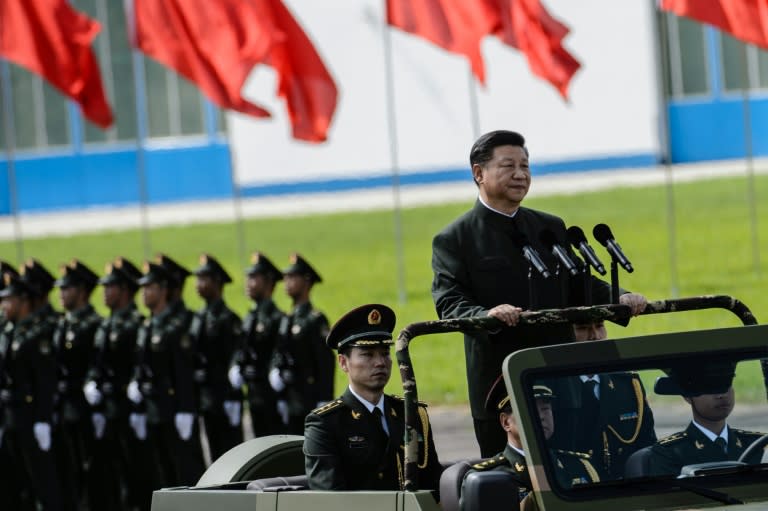Chinese city leadership shake-up signals Xi power play
A sudden leadership change in one of China's biggest cities has highlighted President Xi Jinping's ambition to consolidate his grip on power at an upcoming major political gathering, analysts say. Former Xi aide Chen Miner was named Communist Party chief in Chongqing last weekend, abruptly replacing a politician who was once widely regarded as a contender for promotion to China's top political body. The shake-up in the southwestern megalopolis may signal that Xi is manoeuvering to stack the national leadership with his supporters at the Communist Party congress later this year. During the meeting, Xi is widely expected to secure a second five year term, but what is less clear is who will depart or ascend to the Politburo standing committee, the group of seven politicians who run the world's second largest economy. Chen replaced Sun Zhengcai, a member of the 25-person Politburo who was once a favourite for promotion to the standing committee. Chongqing, with a population exceeding 30 million, is best known to China watchers as the stronghold of Bo Xilai, the outspoken former official who became one of the highest-profile targets of Xi's anti-corruption campaign. Bo, who is now serving a life sentence, was rumoured to be part of a network plotting to stop Xi from assuming control of the party in 2012, and Sun was charged with erasing his influence on the city. In February, party discipline inspectors publicly rebuked Sun for failing to get the job done, leaving his future in question. The city must "resolutely remove the bad impact" of Bo's case, Chen told city officials shortly after the announcement of his promotion, according to the Chongqing Daily. While no reason was given for the leadership switch, the South China Morning Post reported that Sun was under investigation by the Communist Party. The failure to "purge Bo's poison" was likely a factor in the decision to replace Sun, said Hu Xingdou, an expert on China's governance at the Beijing Institute of Technology. But "his removal from office is probably because he directly or indirectly affected Xi Jinping's personnel plans for the 19th Party Congress," he said. - 'The dominant voice' - Chen first worked with Xi in 2002, when the president became party chief of eastern Zhejiang province. In late 2012, the former propaganda chief's career kicked into overdrive following Xi's ascension to the head of the Communist Party. Chen became governor of southwest Guizhou province in 2013, adding the title of party secretary in 2015. "He's an important member of Xi's 'New Zhejiang Army'," Hu said, referring to the group of allies who worked with the president when he was the province's party chief. "He is a person who Xi Jinping very much trusts and relies on." Chen's promotion has "smashed" expectations that Sun would be promoted to the politburo standing committee during the Party Congress this fall, said Chen Daoyin, an associate professor at Shanghai University of Political Science and Law. The promotion, he said, was part of a campaign by Xi to dismantle the system of political succession established by his direct predecessor Hu Jintao and former premier Wen Jiabao, who have maintained considerable influence even in retirement. "If not for this unexpected event ... Sun could have entered the standing committee," he said. Axing him was likely a warning from Xi to his political opponents ahead of an important leadership meeting in August at Beidaihe, the oceanside retreat where the country's top politicians will gather to discuss succession issues ahead of the party congress, Chen Daoyin said. The decision shows that Xi "is the dominant voice in the party, and he can implement his own will in personnel planning." - Long-term planning - But Chen's promotion is also an important step towards cementing Xi's power over the party for decades to come, according to Ling Li, an expert on Chinese politics at Austria's Institute for Human Sciences. The president is allowed two five-year terms, but many analysts speculate he wants to ensure he will maintain control of the country even after he leaves office. Chen, 56, "is much younger than many of other trusted followers of Xi Jinping, and eligible to stay for 2-3 terms if he gets promoted at the upcoming party congress," Li said. "Therefore the appointment is strategic and consequential for the overall power plan of Mr. Xi." As for Chongqing's new party boss, his path is clear, Chen Daoyin said: "In the future, he will be (Xi's) successor."




